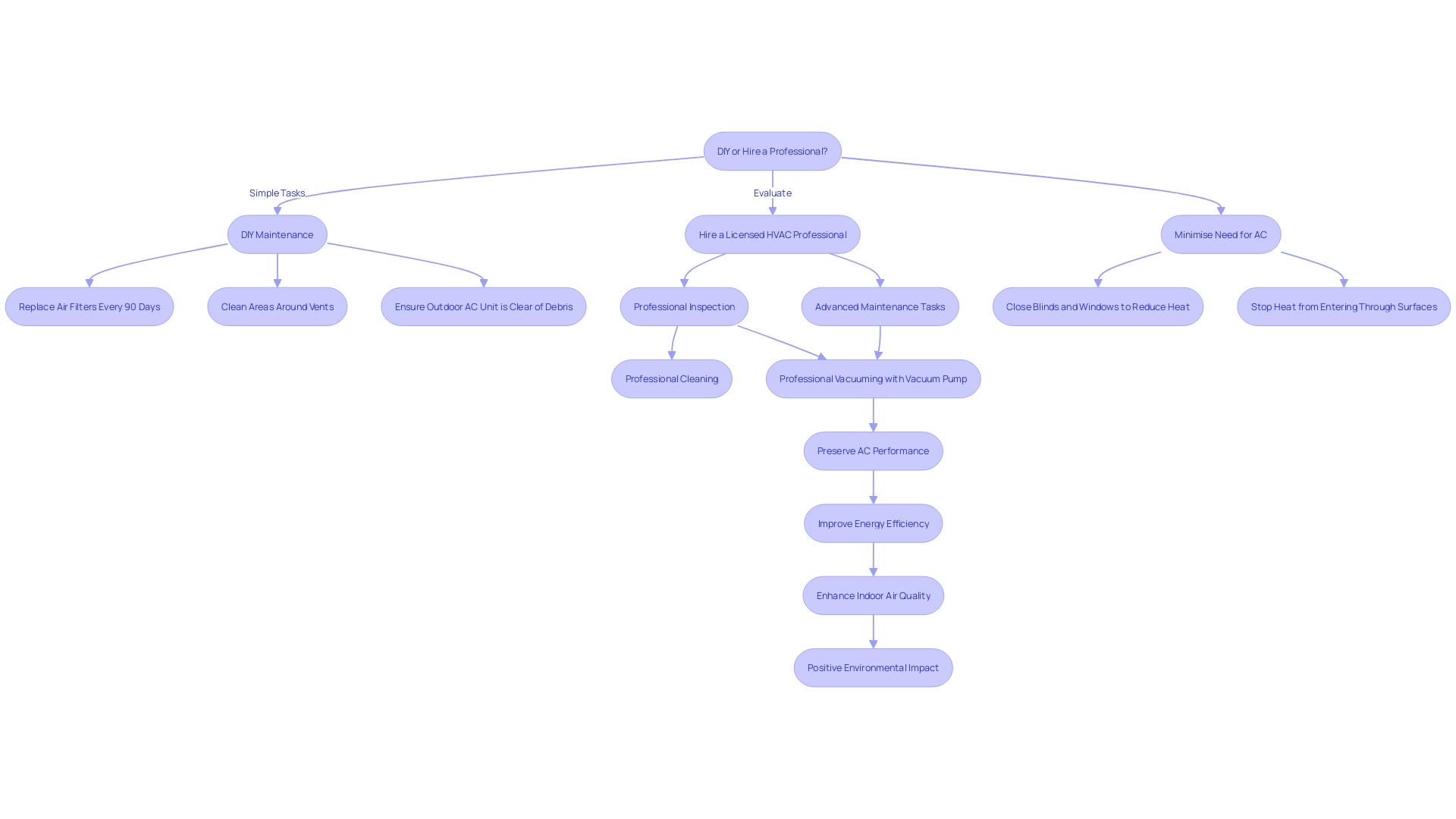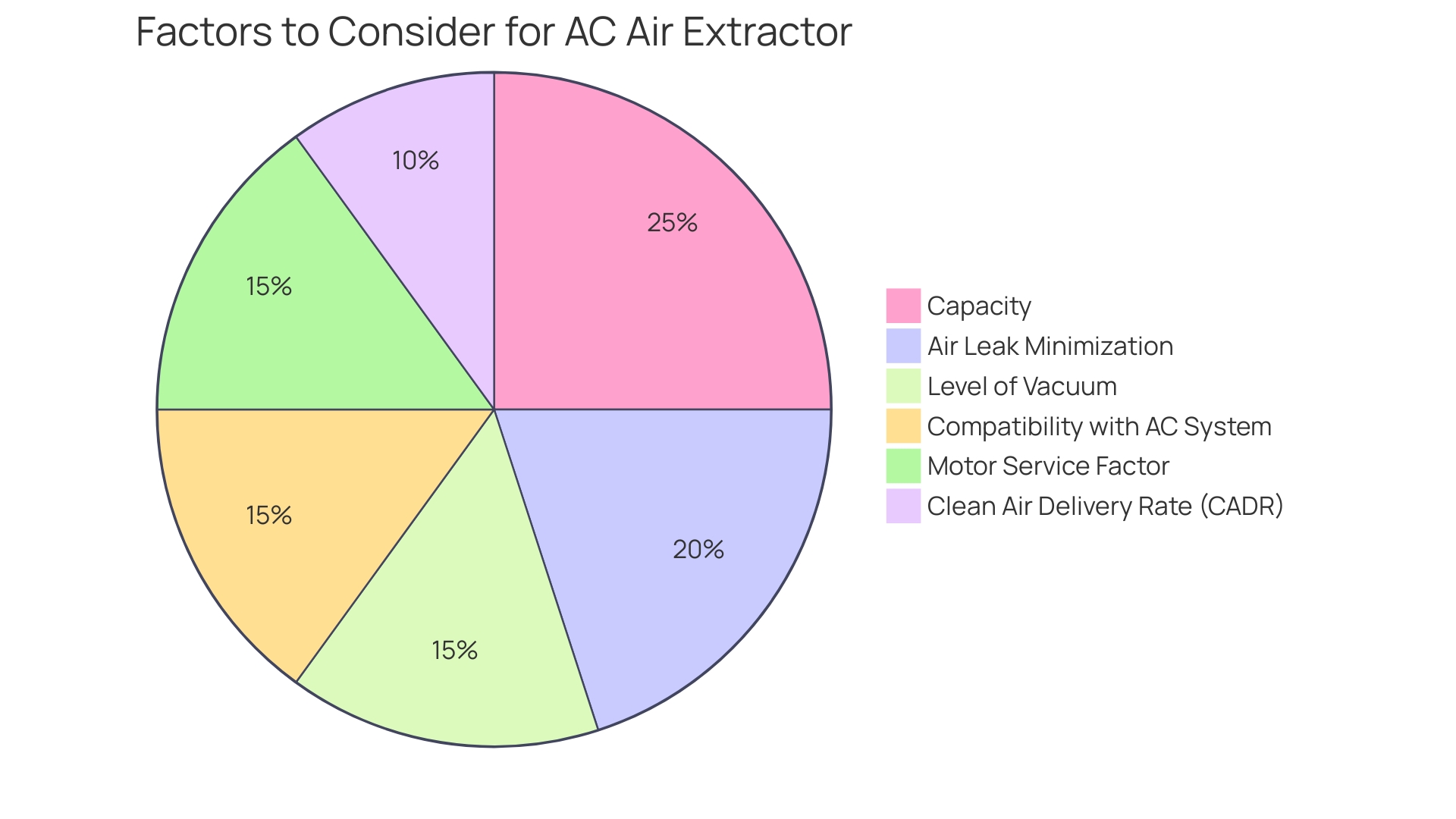Introduction
Maintaining an efficient and high-performing air conditioning (AC) system goes beyond temperature control. It involves optimizing air quality, ensuring system longevity, and addressing challenges that can compromise performance. One crucial aspect of AC system maintenance is routine vacuuming, which plays a pivotal role in removing entrapped air, moisture, contaminants, and particles that can impede refrigerant flow and compromise efficiency.
In addition to improving system performance, vacuuming contributes to clean air delivery and overall indoor air quality. This article explores the importance of vacuuming in AC systems, the role of vacuum pumps in maintenance, different types of AC vacuum pumps, choosing the right pump, best practices for usage, and common mistakes to avoid. By understanding and implementing these solutions, you can ensure a well-maintained AC system that delivers clean and efficient air.
Why Vacuuming is Essential for AC Systems
Maximizing the efficiency of your air conditioning setup is not only about managing the temperature, but also about preserving air quality and the longevity of the equipment. Routine vacuuming plays a pivotal role in this optimization. It's not merely about cleanliness; it's a matter of efficiency and performance. The process of vacuuming removes entrapped air and moisture, which, if left unchecked, can impede the refrigerant's flow and compromise the efficiency of the setup. Furthermore, pollutants and particles that build up inside can cause harm or blockages, impacting both the quality of the air and the overall structure.
Data demonstrate that leakage can represent a staggering 20% to 30% of the overall compressed air consumption of a mechanism, which emphasizes the significance of sealing mechanisms correctly. Airborne pollutants are not just a threat to the efficiency of the mechanism; they are detrimental to our well-being. Good indoor air quality relies on the removal of these harmful contaminants, and an optimized air conditioning setup contributes significantly to this end. With a clean air delivery rate serving as a critical benchmark for effectiveness, the urgency for regular maintenance becomes clear.
Regularly replacing air filters is a straightforward but essential maintenance step. This guarantees that the mechanism is not overworking as a result of blockages and also adds to the clean air delivery rate. It's recommended to replace filters approximately every 90 days or more frequently during heavy usage. Additionally, maintaining outdoor units free from debris can avert airflow interruption, adding to overall health. In essence, vacuuming and regular maintenance go hand-in-hand as preventive measures that save on costly repairs and ensure the delivery of clean air.
The Role of Vacuum Pumps in AC Maintenance
Attaining a well-functioning AC setup is more than just proper installation; it necessitates regular maintenance to preserve top performance and longevity. Vacuum pumps play a crucial role in the maintenance process, as they are necessary for removing air and moisture from the setup. This procedure is vital because any existence of these components can greatly decrease efficiency, resulting in inferior indoor air quality and elevated energy expenses. In fact, studies have shown that leakage in a compressed air system can account for an average of 20% to 30% of total consumption, with potential for much higher losses in some cases.
In the context of building sustainability and automation, ensuring clean indoor air is crucial, and the suction device serves as a guardian against pollutants that can compromise well-being. This is particularly important in modern constructions where mechanical ventilation predominates, and the balance between energy efficiency and air quality is a fine line to tread.
Furthermore, the importance of air extractors expands to laboratories, as emphasized by research chemist Andryj Borys, who underlines their regular use in preserving the accuracy of experiments. Similarly, in the industrial domain, companies like Parker are at the forefront of developing solutions that contribute to more environmentally friendly and intelligent operations, where motion and control technologies, including air suction devices, play a crucial role.
In the end, making sure that your AC suction device is properly maintained or considering a rental service for high-quality machinery can avoid unnecessary energy waste and support a healthier environment, both indoors and worldwide.

Types of AC Vacuum Pumps
AC air pumps are essential tools in various applications, especially when it comes to automotive servicing and air conditioning maintenance. These devices are designed to remove moisture and air from the system by creating a negative pressure in the refrigerant lines. This step is crucial before refilling the refrigerant and ensures the longevity and efficient operation of the air conditioning unit. With a variety of AC vacuum devices available, each providing unique features and advantages, choosing the appropriate one is crucial for obtaining the desired outcomes in your particular application.
From small, portable units perfect for quick tasks and tight spaces to robust, industrial-grade machines that offer higher capacity and durability for more demanding jobs, there's an option to suit every requirement. Certain devices are designed for accuracy and are utilized in laboratories, like the Schlenk line, where careful regulation of pressure and the surroundings is required. Others are designed for the rugged demands of construction sites or large-scale manufacturing processes.
Furthermore, the advancement of intelligent technologies has resulted in the fusion of mechanization and digitalization in air conditioning pumps, enabling continuous observation and management, which is especially advantageous in guaranteeing steady and dependable performance. This technological advancement aligns with the growing demand for smart appliances and devices, as noted by the increasing trend in smart refrigerators in the United States.
When contemplating the rental of an AC suction machine, it is important to evaluate the particulars of your project, such as the kind of setup you are dealing with, the dimensions of the space to be emptied, and the degree of suction needed. Regardless of whether you're working on an automotive air conditioning setup or a large-scale HVAC installation, the appropriate suction machine can have a substantial impact on the effectiveness and accomplishment of your undertaking.
Choosing the Right AC Vacuum Pump
Selecting the appropriate AC air extractor is crucial for preserving a productive air conditioning mechanism and guaranteeing fresh indoor air quality. When choosing an AC vacuum device, it's crucial to take into account factors like capacity and level of vacuum. However, a frequently neglected aspect is the ability of the mechanism to minimize air leaks. With leakage representing around 20% to 30% of the overall usage of compressed air in certain facilities, it is essential to choose a device that can sustain a well-sealed setup. Additionally, compatibility with your AC system ensures you're not only achieving proper vacuuming but also supporting overall sustainability goals.
A crucial performance indicator to consider is the clean air delivery rate (CADR) when assessing the efficiency of a suction device, which quantifies the amount of fresh air supplied by the device within a given period. CADR is a reliable metric for assessing the effectiveness of air cleaning equipment. It's also crucial to consider the service factor of the motor of the suction device, as some manufacturers may enhance the available cfm (cubic feet per minute) at the cost of the motor's longevity - a practice that can result in higher maintenance expenses and periods of inactivity. By prioritizing these factors, you can make an informed decision that aligns with the latest advancements in air purification, ensuring a clean, pollution-free environment and the wellbeing of building occupants.

Best Practices for Using AC Vacuum Pumps
For those who make use of AC devices that create a vacuum, it is essential to understand the intricacies of their functioning to ensure not only durability but also optimal performance. Considering the wisdom shared by experienced professionals in the field, like Andryj Borys, a research chemist who emphasized the significance of correct handling, we comprehend that the secret to effective usage of the suction device lies in a holistic approach to maintenance and operation.
Implementing intelligent techniques can prolong the lifespan of your pump considerably. Consumer Reports suggests that cleaning appliances can last a median of eight years; however, this lifespan can be extended with regular care and proper usage. For example, refraining from using your household cleaner as a shop vac can prevent early deterioration.
Furthermore, comprehending the intricacies of airless setups, as emphasized by Corey Foster from Valin Corporation, can assist in choosing the appropriate machinery customized to your procedural requirements. Whether it's through condition monitoring or preventative maintenance, a tailored strategy will result in more efficient operation and cost savings over time.
From the perspective of compressed air efficiency, leakage stands out as a major area of waste, often accounting for 20% to 30% of total consumption. Dealing with these leaks not only saves energy but also improves the overall performance of your suction setup.
Incorporating these expert insights and maintenance tips into your vacuum pump usage will not only ensure a more successful vacuuming process but also contribute to a more sustainable and efficient operation.
Common Mistakes to Avoid When Vacuuming AC Systems
Avoiding common mistakes during AC vacuuming is crucial for maintaining efficiency and indoor air quality. Key errors include neglecting to select the right AC model with the appropriate British thermal unit (BTU) capacity for your space, which can lead to overworking the unit and reduced lifespan. Regularly replacing air filters every 90 days or more frequently during heavy use is another essential step, as is ensuring that vents and outdoor units remain free of debris to avoid airflow disruption. Additionally, incorrectly handling the electrical components during maintenance, such as failing to power down the unit before changing filters or servicing, can pose safety hazards to technicians. By being mindful of these pitfalls, as informed by the insights of professionals like Andryj Borys and the lessons from the Compressed Air Challenge, you can promote better performance and longevity for your AC system.
Conclusion
In conclusion, regular vacuuming is crucial for maintaining efficient and high-performing air conditioning (AC) systems. It removes entrapped air, moisture, contaminants, and particles that can compromise refrigerant flow and efficiency. Vacuuming also improves indoor air quality by ensuring clean air delivery.
Vacuum pumps play a vital role in AC maintenance by evacuating air and moisture from the system. They contribute to clean indoor air and are widely used in laboratories and industries for experiment integrity and smarter operations. Choosing the right vacuum pump depends on the specific application, and smart technologies have enhanced real-time monitoring and control.
When selecting an AC vacuum pump, consider factors like pump capacity, vacuum level, and minimizing air leaks. The clean air delivery rate (CADR) is an important metric for assessing air cleaning effectiveness. Proper maintenance and operation are key to extending the life and performance of vacuum pumps.
To ensure system efficiency and indoor air quality, avoid common mistakes during AC vacuuming. This includes selecting the correct AC model, replacing air filters regularly, and handling electrical components properly. By following best practices and avoiding pitfalls, you can promote better performance, longevity, and sustainability for your AC system.
In summary, vacuuming is essential for maintaining efficient AC systems and delivering clean air. Choosing the right vacuum pump, practicing proper maintenance, and avoiding common mistakes are crucial for optimal performance. By implementing these solutions, you can ensure a well-maintained AC system that provides clean and efficient air.




